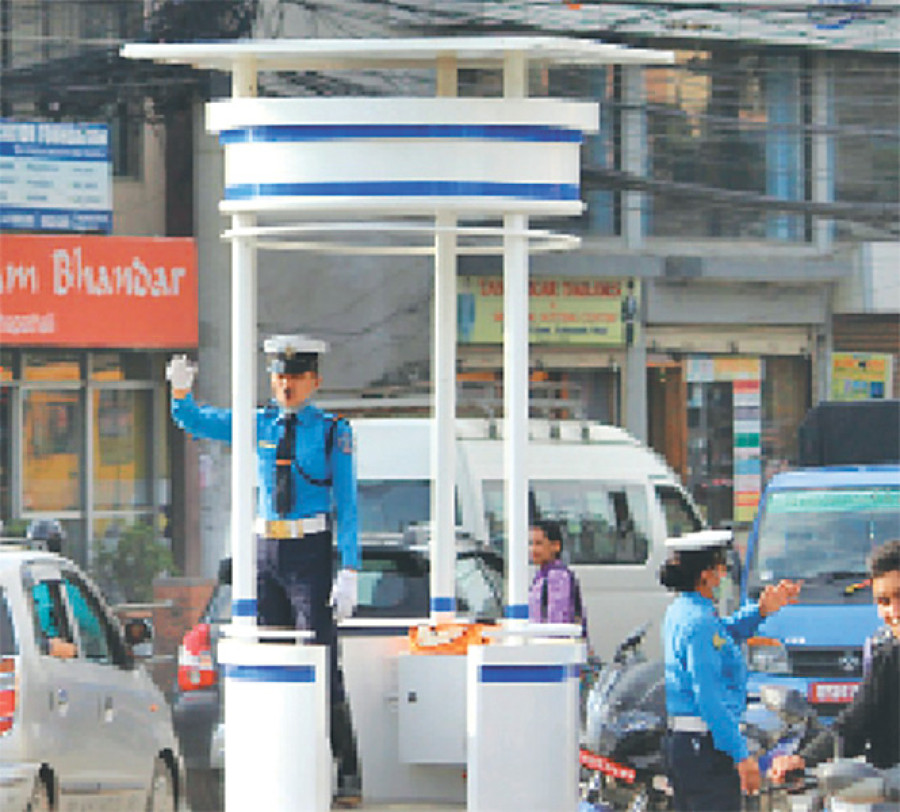Valley
‘Valley traffic cops face several health threats’
Spending long hours in an environment polluted by exhaust fumes of vehicles and dust has posed a serious health risk to traffic officers in Kathmandu Valley.
Samipa Khanal
Spending long hours in an environment polluted by exhaust fumes of vehicles and dust has posed a serious health risk to traffic officers in Kathmandu Valley.
Traffic police are at increased risk of suffering from respiratory and cardio vascular diseases, according to a 2015 study conducted on traffic officers in the Valley by the students of KIST Medical College and the Kathmandu University (KU) School of Medical Sciences. Moreover, a survey carried out by the nursing students of the KU this year found that traffic officers were also prone to varicose veins as a result of prolonged standing while female officers were likely to develop urinary tract infections.
There are nearly 1,400 traffic officers in the Valley and the concerned authorities have done very little to improve their job condition and look after their health. A traffic officer’s job in Kathmandu has become worse of late, because of the ongoing road expansion works and the growth in the number of vehicles on the streets.
Umesh Kumar Mandal, one of the traffic officers stationed in Chabahil, said regular bouts of coughing and itchy eyes were some of the problems that he has learned to live with in his line of job. If his coughing gets serious, Mandal said, he takes cough suppressant medicines and go to work.
Mandal’s colleague Gorakh Bahadur Khadka does the same. He said he was performing his job with persistent eye itching problem.
Chief of the Kathmandu Metropolitan Traffic Police Division DIG Prakash Aryal admitted that organising routine health camps and providing protective gears against air pollution were some of the few steps they have taken to protect the officers on traffic management duty.
The real solution, he said, lies in bringing pollution down which needs wider collaboration of concerned government and non-government agencies.




 9.6°C Kathmandu
9.6°C Kathmandu














